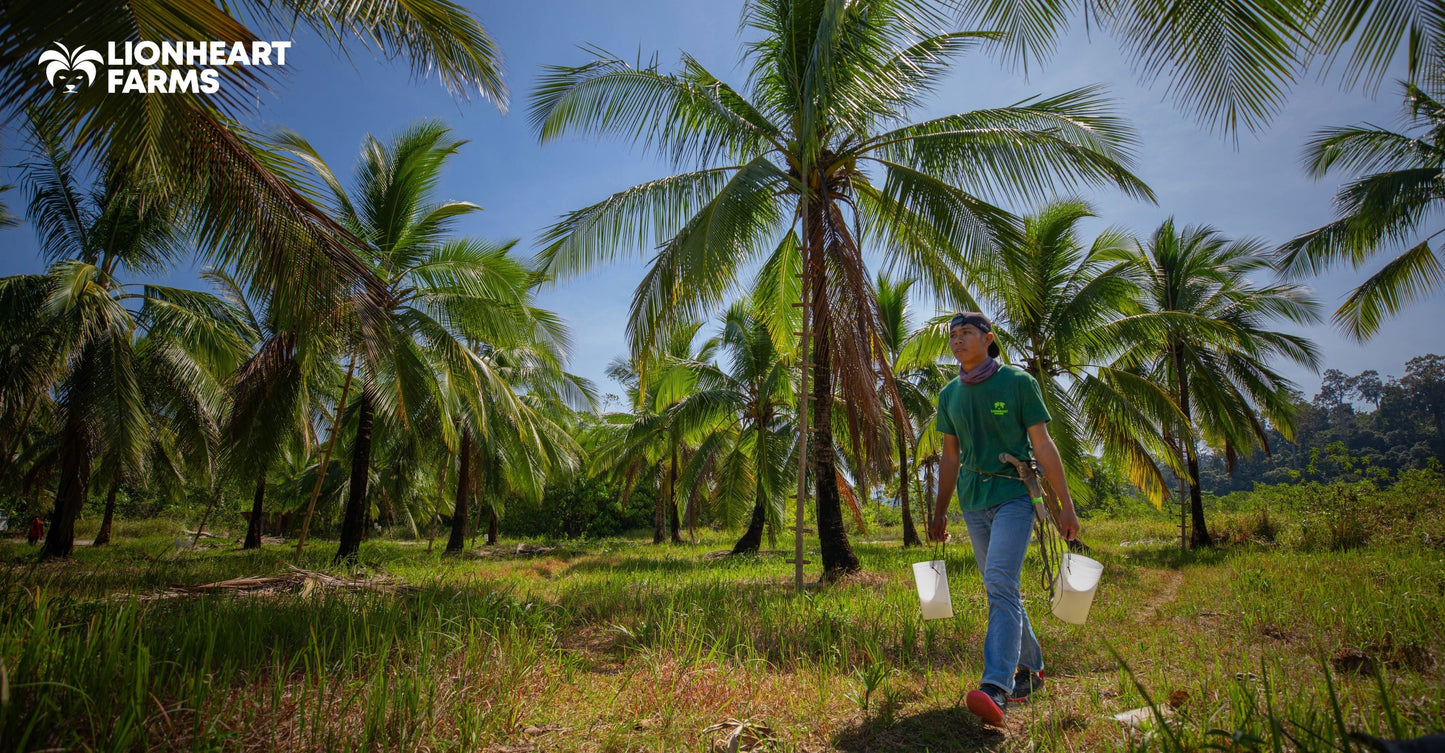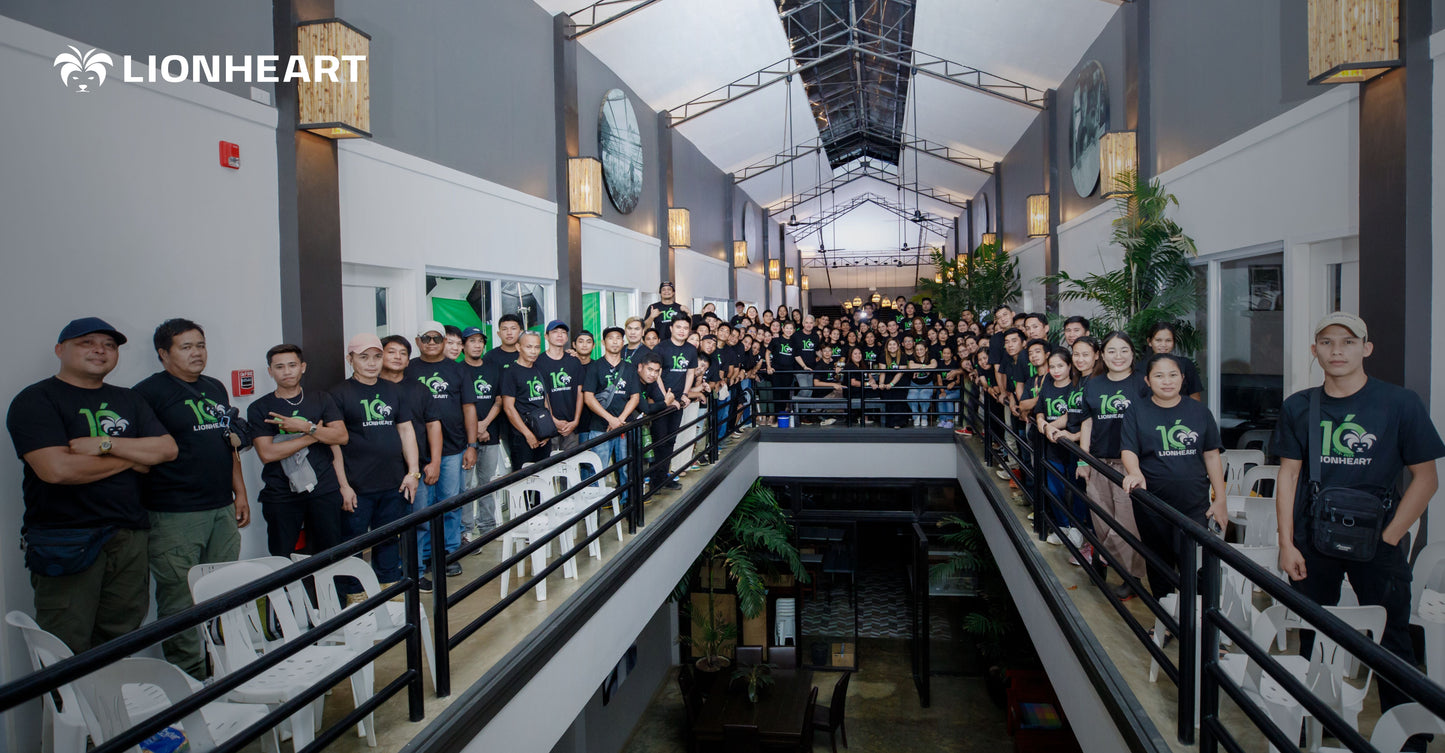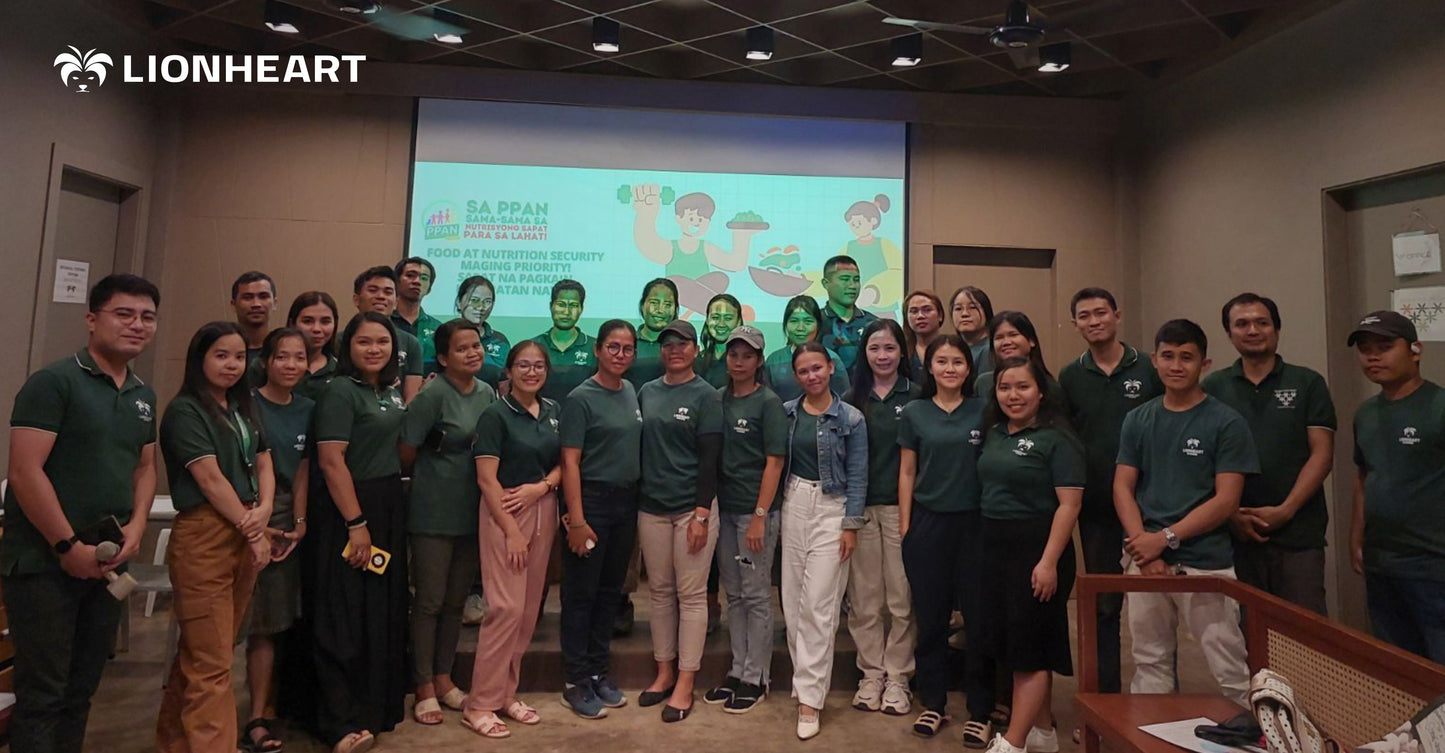
Imagine a farming system that not only produces nutritious food but also fights climate change, preserves biodiversity, and uplifts entire communities. This isn't a utopian dream – it's the reality of sustainable coconut farming in practice today.
In an era marked by climate change, and dwindling natural resources, the need for sustainable agricultural practices has never been more critical. As the global demand for food continues to grow, so does the pressure on our planet’s ecosystems. Sustainable coconut farming blends both innovation and stewardship, addressing environmental challenges while also empowering local communities.
Lionheart Farms leads this effort by blending regenerative farming with social responsibility. By aligning agriculture with nature and community empowerment, this Philippine farm sets a new standard for sustainability.
The Importance of Sustainability in Agriculture
The Environmental Toll of Conventional Farming
For decades, conventional farming has been the cornerstone of global food production However, its environmental toll is undeniable. Heavy pesticide use, monocropping, and excessive water consumption have resulted in:
- Soil Degradation - Over-farming and chemical inputs strip the land of its nutrients, rendering it infertile.
- Water Pollution - Pesticides and fertilizers leach into waterways that harms aquatic ecosystems and contaminates drinking water.
- Biodiversity Loss - The replacement of diverse ecosystems with monocultures displaces wildlife and reduces ecological resilience.
- Climate Change - Agriculture sector contributes to nearly 25% of global greenhouse gas emissions. This is primarily due to livestock, deforestation, and unsustainable land-use practices.
These effects are not only prevalent in a country alone but they ripple across the globe, threatening food security, economic stability, and public health.
The Role of Sustainable Farming
Sustainable farming offers a solution by addressing the root causes of these issues. By employing regenerative techniques such as crop rotation, organic inputs, and agroforestry, sustainable agriculture creates systems that:
- Enhance biodiversity
- Restore soil fertility
- Use resources like water and energy more efficiently
Key Environmental Benefits of Sustainable Coconut Farming
Fighting Climate Change One Palm at A Time
Coconut palms are natural carbon sinks, capturing and storing significant amounts of atmospheric carbon dioxide. Research shows that coconut plantations can sequester more carbon than many other crops. This makes it essential in mitigating climate change.
Here at Lionheart Farms, each coconut palm absorbs approximately 350 kg of CO2 annually. To put this into perspective, a hectare of coconut palms can offset the emissions of 8-10 passenger cars each year. These plantations not only reduce greenhouse gases but also promote cleaner air and healthier ecosystems.
Soil Health Improvement
Healthy soil is the foundation of sustainable farming, Conventional practices deplete soil nutrients. However, here at Lionheart Farms, we use organic inputs and techniques to replenish and protect the land.
By avoiding synthetic chemicals, these practices:
- Increase organic matter, which then retains water and nutrients;
- Foster a thriving solid microbiome that is essential for long-term land fertility; and
- Prevent erosion and promote carbon storage in the soil
Our approach aligns with global regenerative agriculture principles by offering a model for other tropical crops like coffee and cacao.
Water Conservation
Agriculture accounts for 70% of global freshwater use, making water conservation a critical priority. Lionheart Farms’ innovative techniques significantly reduce water consumption compared to conventional sugar production. For example:
- Traditional sugar production: 3,000 liters/kg
- Coconut nectar farming: 200 liters/kg
-
Result: 93% reduction in water consumption
Community Empowerment Through Sustainable Agriculture
Beyond the environmental benefits, sustainable farming at Lionheart Farms prioritizes people. The coconut industry is often dominated by large-scale operations resulting in many small holders and local workers vulnerable to exploitation.
Lionheart Farms aims to change this narrative by:
- Providing Livelihoods - stable employment opportunities empower local families, thus reducing poverty and migration. As of this writing, Lionheart Farms has nearly 2,000 employees, making it one of the largest employers in the region.
- Enhancing Food Security - coconut sap-based products contribute to diversified diets and local availability of nutritious food.
- Strengthening Resilience - economic independence helps communities withstand the impacts of climate change and market fluctuations.
Our model reflects the principles of inclusive growth. By putting people at the center of its mission, we ensure that sustainability extends beyond the environment to encompass social equity.
The Global Relevance of Sustainable Coconut Farming
The practices we pioneered have implications far beyond Palawan and the Philippines. With the coconut sap production spread across tropical regions worldwide, the adoption of sustainable methods can:
- Reduce global greenhouse gas emissions
- Improve the livelihoods of smallholder farmers
- Preserve tropical ecosystems, which are critical for global biodiversity
As consumer demand for ethical and eco-friendly products rises, coconut sap farming offers a competitive advantage. Our coconut flower sap condiments and syrups not only appeal to the health conscious consumers but also align with their values of environmental and social responsibility.
Conclusion
Lionheart Farms’ approach to sustainable coconut sap farming exemplifies a future where agriculture works in harmony with nature. By restoring ecosystems, empowering communities, and producing nature-friendly products, we offer a replicable model for sustainable development.
Every choice matters in the journey toward sustainable agriculture. Whether you're a consumer, producer, or community member, you have the power to support practices that protect our planet and its people.
The path to environmental preservation isn't just about what we save – it's about what we create. Through sustainable coconut farming, we're building a future where agriculture nurtures both people and the planet.
Join the movement toward sustainable agriculture. Choose products that support environmental preservation, community development, and a healthier planet for all.




